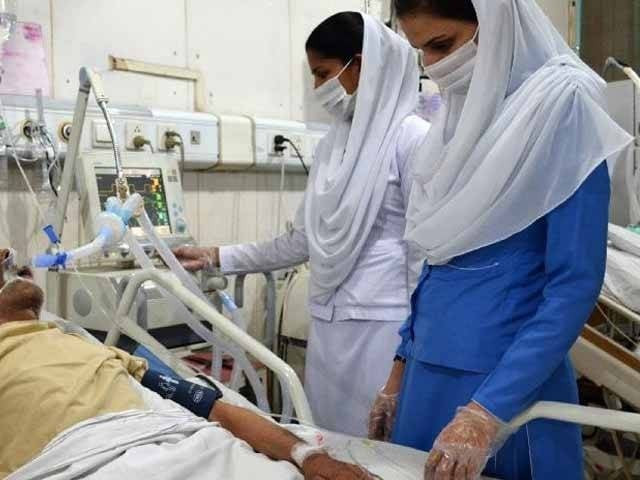Doctors warn against respiratory diseases during cold snap
Call for adopting precautionary measures, vaccination against seasonal flu and influenza

PHOTO: FILE
“Winter is the season for cold and flu, so people must keep warm,” he advised. Another health expert pointed out that this is the season when children face the most problem. “People, especially children, can face different allergies in this season such as itchy eyes, runny nose and sore throat,” said Dr Ikram Durrani. He added that everyone, young or old and especially kids, is severely affected by flu and cough. He advised people to take some precautionary steps since care was the best way to prevent allergy. The capital also suffers from high concentrations of pollen — which can trigger allergies in people. However, the Pakistan Meteorological Department said that current pollen counts were low, at around nine per metre cube of air.
Alternaria had the highest concentration of seven per metre cube in Sector H-8 of the capital. Dr Durrani meanwhile advised drinking boiled water and avoid unhygienic food. “Bacterial and viral infections are quite common in children during winter. Their immune system is not properly developed and during winter, their immunity weakens,” he said, adding that dust and pollution in the air are another threat to children’s health in winter.
Influenza vaccination Meanwhile, with influenza causing seven deaths, experts on Sunday suggested that citizens vaccinate themselves against the virus to prevent the seasonal flu. “Influenza vaccination is also strongly recommended by the World Health Organisation on a yearly basis,” said Professor of Medicine Dr Khalid Mehmod
in an interview. A rapid spread of flu cases is being seen this season worldwide, including in Pakistan, where influenza type A and B are topping the charts, he added. “Prevention is the key,” Dr Mehmood noted, adding that in some cases influenza may cause complications such as pneumonia. “The number of cases would have decreased if people had taken their vaccinations at the right time,” he said, advising that people should have opted for the shot in the fall. Responding to a question, Dr Mehmood said that children, pregnant women and people who suffer from chronic lung and heart diseases are the most vulnerable to influenza. He said that there were four primary types of seasonal influenza including type A, B, C and D. Of these, influenza A and B circulate and cause seasonal epidemics. Dr Ashraf, a specialist in respiratory medicine, said that influenza vaccines cover several variants of influenza viruses, even if one of the viruses is not closely related, the other viruses in the vaccine are likely to be closely related and therefore offer good protection.
Apart from vaccines, doctors recommended taking a series of steps to protect one against influenza. These include regularly washing the hand and properly drying them afterwards, adopting good respiratory hygiene such as covering the mouth and nose when coughing or sneezing, early self-isolation if feeling unwell, feverish or displaying other symptoms of influenza, and avoiding close contact with the sickly. Asked about the symptoms, Dr Ashraf explained that they may include fever, sour throat, flu, headache, body ache, cough, and upper respiratory tract infection. He warned that unless these symptoms are treated properly, they could lead to lower tract infection, laryngitis, bronchitis, lungs infection and pneumonia, which could become fatal. They advised the health departments to launch a public awareness campaign and that patients suffering from influenza should be kept in isolation wards.
Published in The Express Tribune, January 15th, 2018.



















COMMENTS
Comments are moderated and generally will be posted if they are on-topic and not abusive.
For more information, please see our Comments FAQ